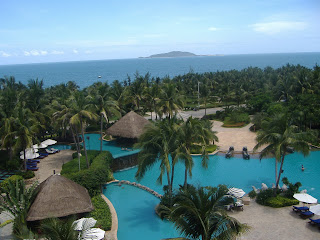 As China gears up for the greatest show on earth in Beijing next month, tensions are boiling over in rural areas and 'small' cities.
As China gears up for the greatest show on earth in Beijing next month, tensions are boiling over in rural areas and 'small' cities.Far from the Chinese capital, scores of major protests have erupted over local political and social issues and the government is now openly expressing its concern through official media.
Chinese newspapers are reporting that local officials will be held responsible for failure to deal with public grievances in their counties.
The latest in the series of incidents was recorded in the affluent coastal province of Zhejiang. Hundreds of migrant workers attacked and injured three policemen after an argument over registration of a migrant as a temporary resident turned violent.
Separately, in Guizhou, 30,000 people took to the streets to protest at what they claimed was a cover-up by officials after the death of a 17 year-old-girl. Her family believe she had been raped by the son of a Communist Party official but the pathology report recorded no evidence of sexual assault.
The truth is impossible to guess at but a senior official dispatched by the central government to investigate pointed the finger at local government for failing to address a series of other grievances. It was suggested that the family's outrage gathered such momentum because the public was already angry over mining disputes and cases of communities being forced to move from their town to make way for new developments.
A Professor at the Chinese Academy of Social Sciences, quoted in China Daily, said: "Infringement of legal rights of the public is still common ... at the grassroots level. That's why the county Party chiefs are the protagonists of this campaign."
Illegal land seizures, non-payment of salary and village officials' corruption are all cited in Chinese media as having contributed to pockets of protesters taking to the streets.
Even this admission is a sign of some progress from central government.
Of course, as Huang Qingping, a resident of Huaining county in Anhui province, is quoted as saying, the move should not be "another temporary image-projecting act".
A friend of a friend (I realize that's a rather loose secondary source!) employed by the U.S. State Department says around 10,000 'incidents' of public unrest were recorded across China last year.
The definition of 'incident' is likely to be rather broad but it surely indicates that President Hu Jintao's harmonious society is facing serious challenges as China attempts to balance rapid economic progress with growing pressure to respect human rights.
It should be stressed that these do not seem to be pro-democracy protests - at least not in any philosophical sense. People are not demanding regime change or free elections. They just want local officials to stop shitting on them.
A lid will surely be kept on such problems throughout the Olympics but there is clear evidence that Beijing will need to get a grip on problems which have erupted across its territories while central government was focussed on macrcoeconomics and China's image abroad.
If they can't continue rapid progress without trampling on their people, the harmonious society will begin to look a little precarious.
[The pic is of the Goddess of Democracy, a statue made by students during the 1989 protests in Tiananmen Square. Those demonstrations were fueled not just by a demand from some for democracy, but also by rising inflation and frustration at the pace of social and economic reforms.]









